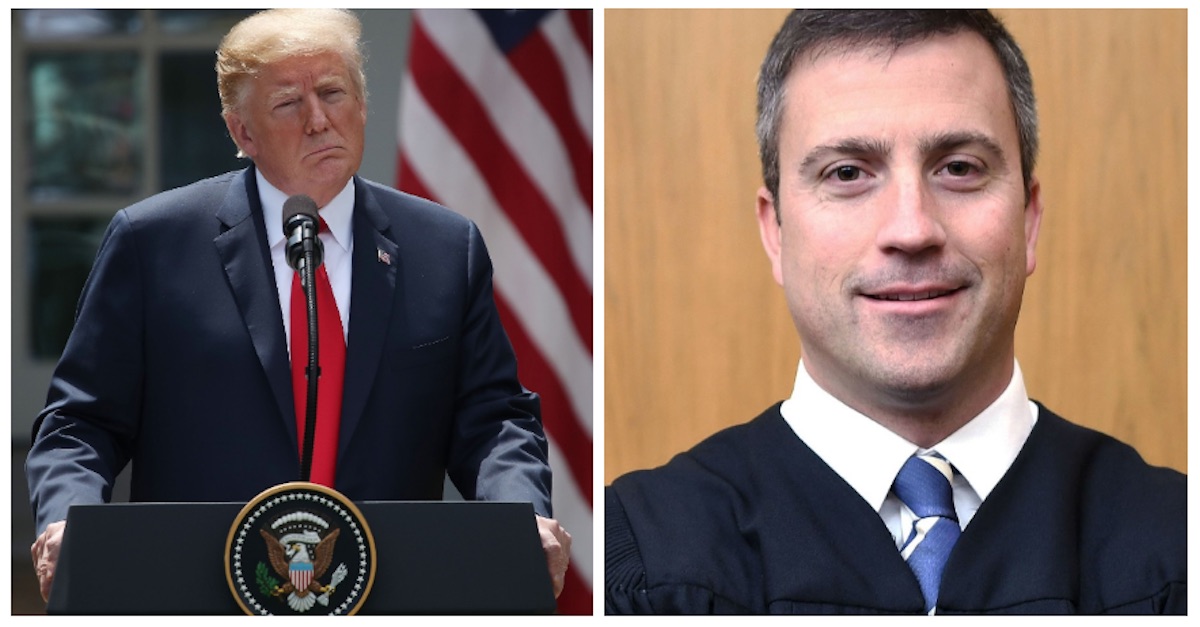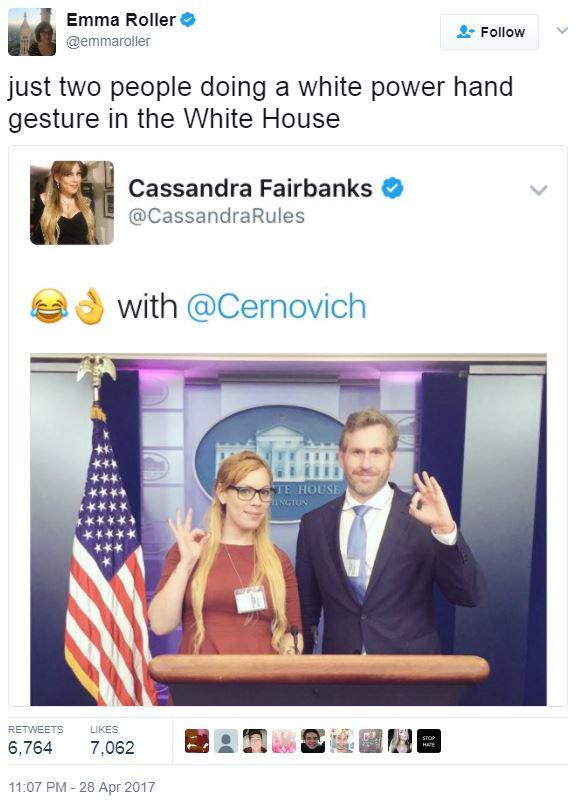
Attorney Robert Barnes was none too pleased about a Donald Trump-appointed federal judge’s decision to dismiss his pro bono client Cassandra Fairbanks‘ lawsuit against Splinter News’ Emma Roller. The lawsuit was filed last year after Roller said Fairbanks was making a “white power hand gesture” in a picture with Mike Cernovich.

Barnes, a Law&Crime columnist, tore into U.S. District Court for the District of Columbia Judge Trevor N. McFadden for getting his facts from the internet and called out his characterization that Fairbanks “trolled the web through Twitter.”
“The trolling story is completely false. The Judge deduced that from a hodgepodge of tweets taken out of context because the Judge decided he could figure out the facts ‘from the internet,'” Barnes said. “The Judge even claimed courts can now take ‘judicial notice’ of things they read on the internet. Apparently, this Judge has never heard of fake tweets and tweets disguised to look like something they are not.”
Barnes also said McFadden is “not an endorsement of Trump’s district court judicial selections.” Trump nominated McFadden in June 2017 and was sworn in by October. As Politico noted, he is one of three Trump-appointed judges in the D.C. district court. McFadden also donated to the Trump campaign.
As Law&Crime reported earlier Thursday, McFadden used the word “trolled” in the first line of his opinion.
“Plaintiff Cassandra Fairbanks trolled the web through Twitter, releasing a photo of herself and a fellow journalist in the White House press room making a gesture widely recognized as the ‘okay’ hand symbol but also speculated at the time to be a ‘white power’ symbol,” Judge McFadden began.
We thought at first that he might have been using the word in a non-internet sense but McFadden specifically mentioned comments made about trolling by Fairbanks on Twitter after Roller tweeted that the “okay sign” was code for “white power.”
“They’ve become so easy to troll that you don’t even have to make an effort anymore,” Fairbanks responded to Roller in one instance. “The outrage is cracking me up” she tweeted in another.
“Please tell me you guys made the OK sign to troll off this fantastic lefty hysteria,” documents record Fairbanks responding to another tweet.
Ultimately, the judge said Fairbanks was obligated to support her defamation claim by “alleging facts that support a finding of actual malice on the part of Ms. Roller” and said arguments did not come close to “satisfying the First Amendment’s demanding standard for public figures bringing defamation actions.”
Fairbanks, who works at Gateway Pundit and supports Trump, responded to the dismissal Thursday by telling Law&Crime that they “were lightly trolling — but not in the way that they claim.”
“When giving speeches, President Donald Trump does the ‘okay sign’ when he is making a point. He does it so often that Trump supporters began doing it as a sign we support the President,” she said. “Unbeknownst to me at the time, 4chan decided to create a meme saying it meant ‘white power,’ which even the ADL has debunked.”
“We were lightheartedly trolling in the ‘we support Trump and are in the briefing room invading the mainstream media’s space’ kind of way — not in a ‘white power’ way. It is absolutely absurd to call either of us a white supremacist. I’m Puerto Rican for goodness sake, I wouldn’t even be allowed in an ethno state,” she added.
She later tweeted “I am adding that a court has ruled that I’m a troll to my resume 😂.”
Gizmodo Media Group spokesperson David Ford said in a statement that the case against Roller was an attempt to intimidate a reporter who had an eye on the political fringe.
“We believe this suit was a clear attempt to intimidate reporters who scrutinize the activities of those on the fringe and we’re pleased that the Court applied the strong First Amendment protection for public debate and dismissed this case,” he said.
[Images via Mark Wilson/Getty Images and United States District Court for the District of Columbia]